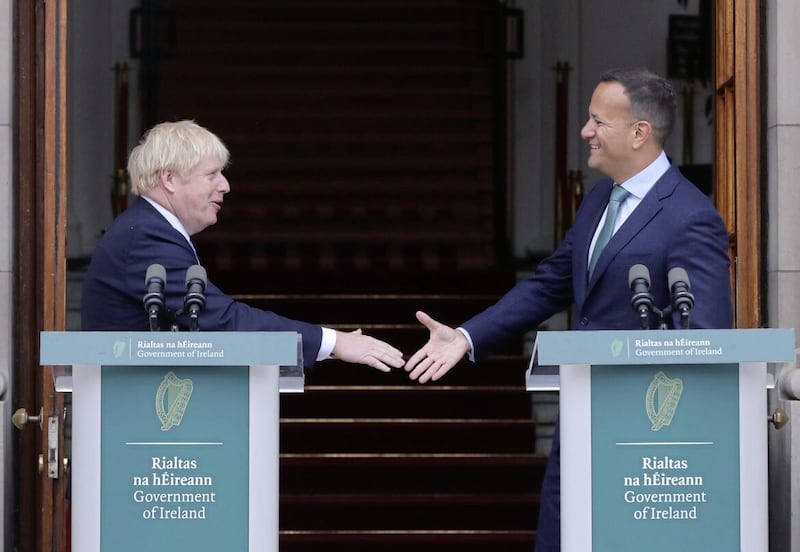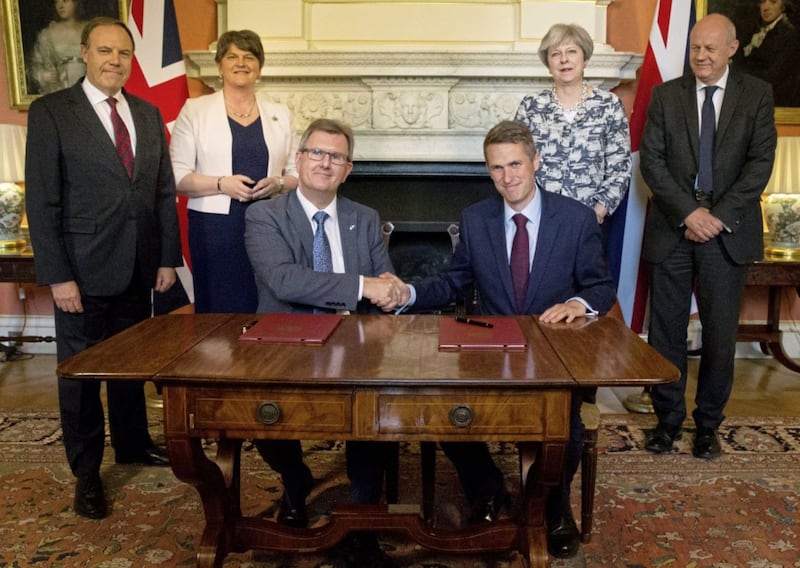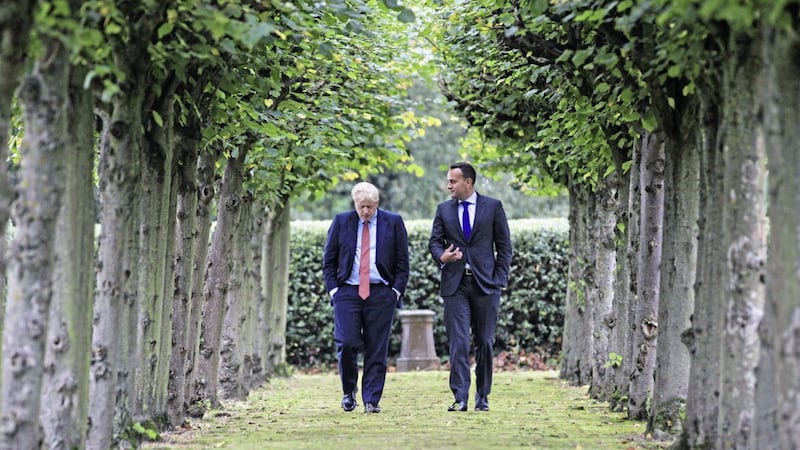UNACCUSTOMED as I am to writing favourably about Tory prime ministers, it’s been encouraging to see the sustained effort by Rishi Sunak to resolve the dispute over the Northern Ireland Protocol.
Like most of us, he wants the Stormont Executive restored, but it is hard to avoid the impression also that achieving better relations with the European Union is a major driving force in British moves to deal with the problem.
When I say "British moves", I can't add the word "unanimous", since a source close to Boris Johnson has been quoted as saying it would be a "great mistake" to abandon the bill working its way through parliament which would allow ministers to override elements of the protocol and block any role for the European Court of Justice (ECJ), which unionists regard as a threat to Northern Ireland's position within the United Kingdom.
Could this be the same Boris Johnson who, as prime minister, took part in "the Walk on the Wirral” where himself and then-taoiseach Leo Varadkar cut a deal whereby Northern Ireland would remain in the customs territory of the EU as well as the UK market?
Indeed, Lord Empey of the Ulster Unionist Party said on Radio Ulster's The Nolan Show: "We all know the protocol is Boris Johnson's child. He proposed it to the European Union in October 2019."
Remember the famous photograph at the time of the two heads of government walking together in the tree-lined grounds of Thornton Manor? Leo must have felt that all his birthdays had come at once since the prospect of a hard land border on the island of Ireland with all its security and political implications had been averted.

Indeed, an Irish Times/Ipsos MRBI poll conducted immediately after the Wirral get-together showed that public satisfaction with Varadkar's performance as taoiseach had soared by 15 points to 51 per cent.
At the time I wrote in this newspaper: "It is still too early to say whether it will all work out in the end". Well, we're all a little older and hopefully wiser now. The protocol that emerged from the Wirral get-together has put Northern Ireland politics into the deep-freeze and it doesn't look as if things are going to improve until after the local elections on May 18 and perhaps not even then.
Taking a more long-term view, can Brexit be sustained in its current format or at all?
On January 31 2020, at 11pm local time (midnight on the continent), the referendum vote took effect and the United Kingdom left the EU. Looking back on the last three years and three weeks since then, you could hardly say that the UK economy has been brought to a far better place.
Securing freedom from the obligations of EU membership was supposed to open new possibilities but it is difficult to think of any great advances in that time. Feel free to email me at the address on the top of this page if you disagree.
When Theresa May was prime minister she sought a softer version of Brexit but didn't get enough support. In retrospect, it looks as if her opponents made a mistake.

The Swiss, the Norwegians and others are not EU members but they are part of the European single market and seem to be doing quite well out of it. If the entire UK had remained in the European customs union, at least on a temporary basis, it would have allowed completely frictionless trade to continue across the Irish border.
It would also, of course, have prevented the UK from making trade deals with other countries around the world that involved lifting tariffs on goods. The prospect of profitable trade deals was very appealing to Brexiteers but has that goldmine for the British economy emerged yet?
Switzerland has a series of bilateral treaties with the EU whereby it can participate in the single market without being a member state. Similar rules apply in the European Economic Area whose members include Norway, Iceland and Liechtenstein, none of whom are members of the EU.
A similar arrangement, at least on a temporary basis, could have worked for the UK. At a minimum it would have helped the British to find their feet and given them time to adjust to the implications of Brexit.
Out of eight polls published in the six months after the January 2020 departure from the EU, five showed that the highest percentage of respondents still believed leaving the EU was the right decision. That mood has definitely changed since then and the last poll with the highest figure in favour of such a position was conducted on April 19 2022.
In a total of 33 polls carried out since then, not a single one showed the highest figure in favour of continuing with Brexit: every single one of them had the highest percentage supporting a return to the EU, with figures ranging from 41 per cent to 53 per cent. Support for staying out of the EU ranged from 29 per cent to 43 per cent, with between 7 and 23 per cent voting for "Neither". You can study the figures in more detail on Wikipedia.
-----------------------------------
Finally, on a sad note, I wish to express my sympathy to the relatives and friends of Henry McDonald, distinguished author and journalist, who has left us at the early age of 57.
I last met him as part of the media group outside the church in Lisburn during the funeral of former First Minister Lord David Trimble, whose biography he had written.
Henry's professional output was both substantial and impressive. A vibrant, tireless life force, he will be greatly missed.








